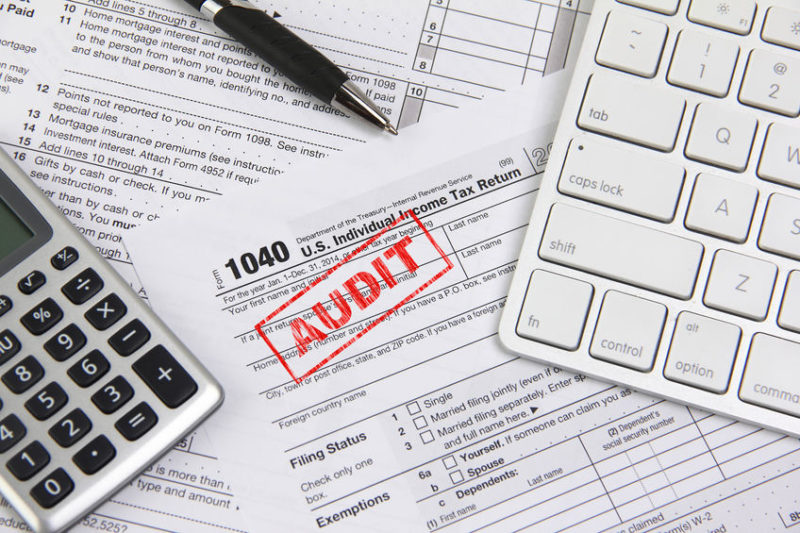I was reading an article on a recent tax court decision in which the court trial was borne out of an examination of an individual taxpayer. One passage from the article read as follows:
“The IRS auditor analyzed the taxpayers’ bank statements and records to identify total deposits and asked the taxpayers where the deposits came from. Deposits for which the taxpayers could not identify the source were classified as taxable by the auditor.”
There’s a lot to unpack here, but before we get started, let’s discuss some background items.
A few general facts
First, the fact that this case is an individual exam is irrelevant to you the reader. As I teach in my classes, you and your business are one and the same. Therefore, in any exam, an auditor will audit both you and your business. Even if your business is a separate entity. There is no hiding behind separate entities.
Second, any exam is going to carry on for multiple years; three years is the most likely scenario to start. If you’re unfortunate, it will only grow from there. Outside of certain circumstances, the IRS can generally audit any of the last three years filed. So as of December 2019, the IRS can freely audit 2016, 2017, and 2018 returns.
Third, while I’m an accountant and have a different perspective, I know taxpayers generally don’t keep accurate “books and records” for themselves. How do I know? Easy. Every time I go to the bank, the teller asks me, “Do you need a balance?”. The accountant in me thinks this is quite possibly the worst question ever asked because the bank never has a correct balance. However, it seems to be of great service to the general population because the bank keeps asking. Thus, the fact that a bank, who never has the correct balance, is better than the individual’s own records tells me the individual must have less of a clue than the bank as to what their correct balance actually is.
Unpacking the details
With that background established, let’s start unpacking the passage in the article, kind of like you would your favorite Bible verse:
First, the auditor analyzed ALL the taxpayers’ bank statements and records. So, if you have four bank accounts, you’ll be required to hand the examiner 144 statements (4 accounts for 12 months for 3 years). No exceptions. Keep in mind, a lot of online banking services only go back one year and we as individuals don’t keep good records. Thus, you could very well need to pay for nearly all the statements to be reproduced. As of December 2019, the only statement available to us online for our 2016–2018 exam is December 2018. Yikes, that’s a lot of bank charges!
Second, the auditor added up total deposits on the bank statements. An auditor will subtract transfers between accounts, which could be documented if they are done electronically. However, if you’re writing a check from one account to the other, even a transfer may not be documented clearly. After this, the auditor compared TOTAL ADJUSTED DEPOSITS to known income. It’s extremely important to know an examiner will ALWAYS do this analysis – either for a business or individual. They are looking for unreported income.
Next, the auditor was nice enough to ask the taxpayers where the deposits came from. Nice, huh? We all assume it would be the auditor’s job to figure out sources and amounts of income. However, that’s a very bad assumption. We, as either businesses or individuals, need to know the sources for all our deposits. It’s not for the IRS to figure out.
As a result, “Deposits for which the TAXPAYER could not identify the source WERE CLASSIFIED AS TAXABLE.” Think about that for a moment. EVERYTHING not identified was classified as taxable. EVERYTHING. You’re probably thinking, “That’s not fair!”. It certainly isn’t. However, auditors have a godlike power. They can pretty much do anything they want. That’s just the way it is.
So, let’s think about this in terms of ourselves. We have already determined individually we don’t keep good books and records. So that $350 deposited on 7/6/16. What was that? Don’t know? Bam! Taxable. That $890 deposit on 8/31/17. What was that? Don’t know? Bam!! Taxable. In reality, these could have been insurance refunds; redeposit of left-over cash you took on vacation; your kids’, family’s, or friends’ reimbursement for some expenses; mileage reimbursements; legitimate gifts; and on and on. ALL OF THAT IS NOW TAXABLE because you were too lazy to keep a simple check register. This is now rubbing salt in the wound after you had to pay to obtain the bank statements.
For rainy day Monday fun, I looked at my own records. While I do, in fact, know where and what all my deposits are for, I pretended I didn’t have good records, or any at all. I can prove my wages and account transfers. But again, I’d have no way of remembering or proving insurance refunds, tax refunds, expense reimbursements from my kids, or my sister giving me cash as a reimbursement for my parents’ anniversary present, some small court settlements, etc. For one year, the total was $4,995. So over three years, that would mean $15,000. While $15,000 isn’t enough to rise to the level of fraud, it is enough to cause a lot of hurt. If we assume a fairly common tax rate of 24%, that would mean an examiner could assess me with an additional tax of $3,600 in an exam BEFORE penalties and interest. Now we’re taking sandpaper to that wound. Again, all because I was too lazy to keep a simple check register.
Keep in mind, I did nothing wrong. I correctly reported all items of income and deductions correctly under the law. I just was lazy with my recordkeeping. Now I’m out $1,440 – $3,600 for bank statement copies that cost me $10-$25 per copy, $3,600 in assessed tax, and hundreds more in interest and penalty. Lastly, I may want to have someone represent me in an exam. That could easily cost me another $3,000 – $5,000. Remember, since I don’t have good records, the guy charging $200/hour is going to have more time than if my records were good. And after all this, I HAVE NO DEFENSE TO APPEAL THE DECISION.
Yes, this is very real and can happen. I’ve seen it. Remember, as you suspect with the IRS, you are guilty until proven innocent. What you don’t know can indeed tax you.
 Brent Thompson, CPA has been with Canon Capital since 1998. He provides management advisory services, tax and general business planning, tax preparation, and financial statement preparation and review services for numerous businesses and their owners. He holds the Certified Management Accountant (CMA) designation and a Chartered Global Management Accountant (CGMA) designation. Brent is a member of the AICPA and the Institute of CMA’s.
Brent Thompson, CPA has been with Canon Capital since 1998. He provides management advisory services, tax and general business planning, tax preparation, and financial statement preparation and review services for numerous businesses and their owners. He holds the Certified Management Accountant (CMA) designation and a Chartered Global Management Accountant (CGMA) designation. Brent is a member of the AICPA and the Institute of CMA’s.
This article is designed for general information only. The information presented should not be construed to be formal advice nor the formation of a client relationship.

